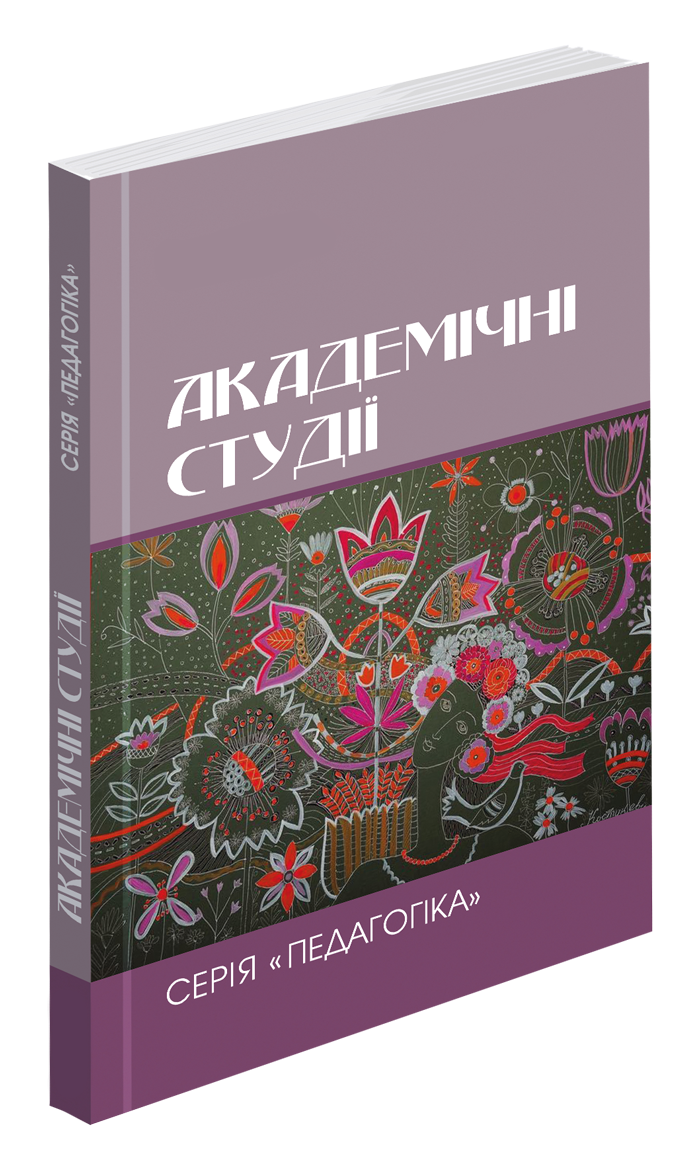Abstract
The professional activity of an engineer is connected with the need to perform research tasks in the field of industrialproduction, which actualizes the problem of formation of research skills in the process of training in higher technicaleducational institutions. The article examines the problem of formation of research competence of future specialists in the technical field.The structural components of the professional competence of a specialist in the technical field are substantiated, which include personal qualities of a future engineer, professional knowledge and skills, and value orientations of the individual.Research activity is considered as a necessary condition for the effective formation of the general professional competence of a future specialist in the technical field.The patterns and characteristic features of the professional training process are identified, which became the basisin the process of developing criteria, indicators and levels of formation of research competence of future specialists inthe technical field. The motivational-value, cognitive and activity-practical criteria of research competence of futureengineers are highlighted, the corresponding indicators and levels of formation are substantiated.The effectiveness of the developed conditions for training future specialists in the technical field to form their research competence has been proven. These conditions are defined as formation of motives for research work; acquisition of appropriate knowledge of the methodology of scientific research; involvement of engineering students in the work of university scientific associations (scientific schools, clubs, problem laboratories); and gaining experience in conductingresearch activities.Further research of the issue can be aimed at studying the influence of scientific and research activities on other aspectsof training future specialists, such as motivation for learning and level of professional skills.
References
Astutik S., Susantini E., Madlazim M., Nur M., Supeno S. The effectiveness of collaborative creativity learning models (CCL) on secondary schools scientific creativity skills. International Journal of Instruction. 2020. Vol. 13. No. 3. P. 525–538. DOI: 10.29333/iji.2020.13336ª.
Bachiieva L. Methods and technologies of teaching of research methodology: analysis of theory and practice. Youth and Market. 2023. Vol. 4 (212). P.99–103. DOI: 10.24919/2308-4634.2023.279658.
Bernate J., and Vargas J. Challenges and trends of the 21st century in higher education. GUNi Newsletter. 2020. Vol. 26. P. 141–154.
Butsyk I. Differentiated and gradual organization of training in the methodical system of the development of research competence of specialists in agricultural engineering in the process of studying agricultural machines. Mìžnarodnij fìlologìčnij časopis. P. 138–148. 2020. DOI: 10.31548/philolog2020.01.138.
Golovko N., Korobova I. Formation of natural scientific competence of students through use situational tasks of physics. Physical and Mathematical Education. 2020. Issue 2 (24). P. 31–36. DOI: 10.31110/2413-1571-2020-024-2-005.
Grynova M., Shvedchykova I., Soloshych I., Bunetska I., Soloshych S. Project approach in the formation of scientific and research competence of students of energy specialities. 2022 IEEE 4th International Conference on Modern Electrical and Energy System (MEES). 2022. P. 1–4. DOI: 10.1109/MEES58014.2022.10005742.
Maryani I., Irsalinda N., Jaya P.H., Sukam H.H., Raman A. Understanding student engagement: an examination of the moderation effect of professional teachers’ competence. EduLearn. 2025. Vol. 19. No. 1. P. 14–23. DOI: 10.11591/edulearn.v19i1.21455.
McCulloh G., Brewis G. Introduction: education, war and peace. Pedagogic Historica. 2016. Vol. 52 (1–2). P. 1–7. DOI:10.1080/00309230.2015.1133679
Petruk V. Communicative competence of a specialist of a social field as a component of his professional activity. Humanitas. 2021. P. 44–50. DOI: 10.32782/humanitas/2021.2.7
Poyasok T., Bespartochna O., Dniprovska T. Formation of scientific and research competence of future electrical engineers. Proc. IEEE Modern Electrical and Energy Systems (MEES). 2019. P. 450–453. DOI: 10.1109/MEES.2019.8896518.
Reddy D. Scientific literacy, public engagement, and responsibility in science. Cultures of Science. 2021. Vol. 4. No. 1. P. 6–16. DOI: 10.1177/20966083211009646.
Romanchuk N. Formation of professional and value orientations of prospective engineer’s preparation process. Scientific Journal of National Pedagogic Dragomanov University. 2023. Vol. 91. P. 202–206. DOI: 10.31392/NPU-nc.series5.2023.91.42.
Shetelya N. Professional training of future specialists in the field of culture and the arts on the basis of an axiological approach. Musical Art in the Educological Discourse. 2022. No. 7. P. 27–31. DOI: 10.28925/2518-766X.2022.75.
Shukhailo Y.V., Derkach T.M. Project-based learning for undergraduate engineering students minoring in textile technology and design. Journal of Physics: Conference Series. 2021. Vol. 1840. No 1. P. 12–42. DOI: 10.1088/1742-6596/1840/1/012042.
Shumilova I., Ionova O., Syvak O. Professional competence of future engineers in the process of training of computer science disciplines. Proc. ETR, Environment. Technology. Resources. 2019. Vol. 2. P. 228–232. DOI: 10.17770/etr2019vol2.4133.

This work is licensed under a Creative Commons Attribution 4.0 International License.

